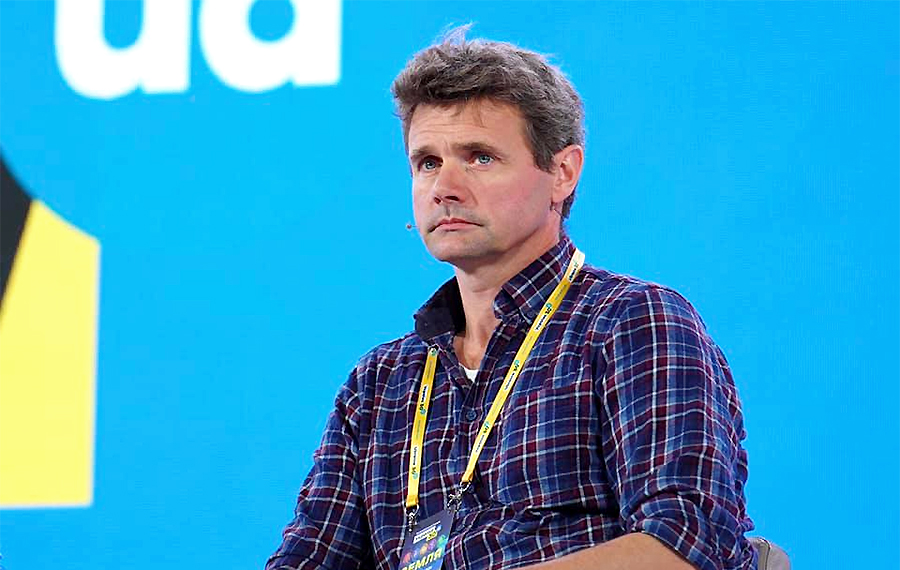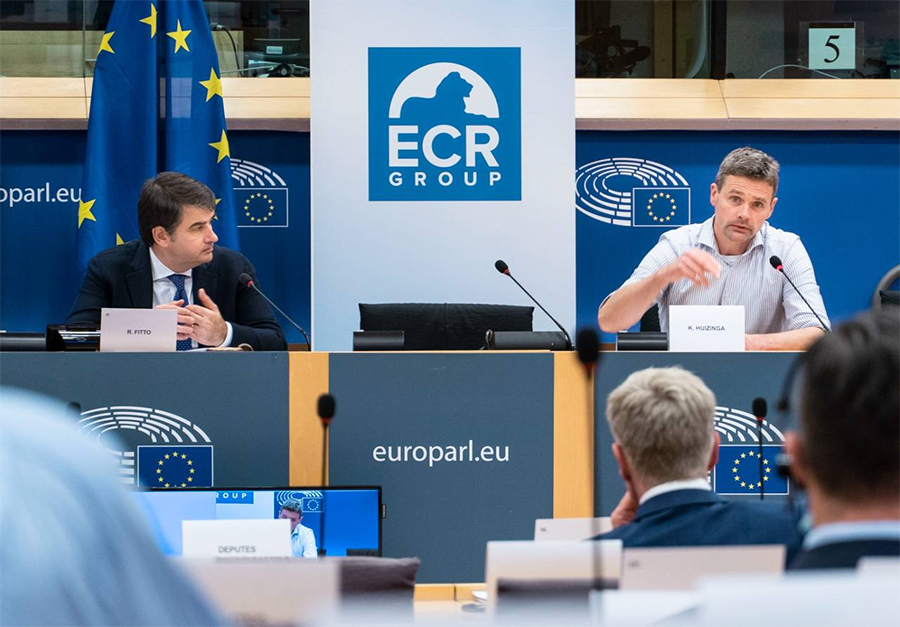
Dutch farmer Kees Huizinga, a member of the Ukrainian Agri Council, has owned a farm in Ukraine for the past 20 years. In early March, he traveled to Europe to convey to western politicians the importance of supporting Ukraine in times of Russian aggression. During this time, the farmer held dozens of meetings with deputies, ministers, representatives of international organizations, spoke on the air of the western media. Today, Kees Huizinga returned to Ukraine for sowing.
Why was it necessary to go to Europe?
Ukraine's agricultural sector feeds almost half a billion people on the planet. On the eve of the large-scale war between Russia and Ukraine, I told the western media about the events taking place in the country, about our problems. When the war broke out, I began to inform the people there that the war was not only a catastrophe for Ukraine but also a catastrophe for the whole world.
Fearing that mobile and Internet communications in Ukraine could be disrupted, I was delegated by the Ukrainian Agri Council in early March to continue to tell the truth about the war in the West. I had the opportunity to directly tell journalists, politicians, and public figures about the events in Ukraine.
How difficult is it for Europeans to understand the scale of the war and the threats in Ukraine?
In the first days of my visit to the Netherlands, I was invited to TV channels, where I talked about the food crisis, which was already gaining momentum. At that time, prices in Europe had already begun to skyrocket. After that, the politicians started calling me and inviting me to meetings. But it turned out that they needed to be informed about the complexity of agricultural production in order to convey the terrible consequences of the Russian-Ukrainian war, which awaits the world and Europe in particular. I reported on the whole chain of grain production.
Does the EU understand how strong the consequences of the war will be in the context of the global food crisis?
I emphasized that food products will not disappear in Europe itself, but they will continue to rise in price. The Ukrainian-Russian war will cause some food problems in the West. The situation will be much worse in North Africa and the Middle East.
Tell us about your speech at the European Parliament
This meeting became possible thanks to a member of the European Parliament Bert-Jan Ruissen. There were about 60 members of the Parliament in the hall. First I was given the floor, then they asked their questions.

I stressed that the MEPs should help Ukraine tougher and faster in ending the war. There is no time for talk. Every day of the war will bring more and more distress to both Ukraine and Europe.
How do MEPs respond to your calls?
They all say, “What should we do? We can create a working group, a commission to address this issue." But working groups are suitable for a normal life, and during the war in the center of Europe, they do not have time. Everyone should say, “Enough is enough. We must drive out Russia from Ukraine." Then the Ukrainian people and farmers will continue to work and provide the world with food.
As a result of such discussions, the EU has begun to realize that food problems will cover the world in full in summer or autumn. It is difficult for them to make decisions because they do not think so far ahead. I hope that my words will push them to make the right and fast steps. And the real support for Ukraine today should not be public, there is no need to advertise military or other assistance.
What do you think the West should do to support us in the war with Russia?
The West has taken certain measures: sanctions, military, humanitarian aid, and refugee support. But Russian propaganda works well there. Ordinary citizens in the EU look at Ukrainian events somewhat naively and seek to maintain their comfort. And stories about the war in Ukraine make them scared. Then they start saying, "And we ordinary people, what can we do?". I answer: "Each of you can help Ukraine, you can demand from your parliamentarians that they act faster and more decisively."
I know that you work as a volunteer and also help the Ukrainian army. What are the difficulties in importing humanitarian aid from Europe?
My family left Ukraine. My wife is involved in humanitarian aid. More than 40 cars have already been sent to Ukraine.
For example, the Netherlands has raised $150 million in a special fund. Humanitarian associations have to distribute this money for the purchase of things, and this process is very bureaucratic. It takes time. For example, I was recently in the office of the oil company Shell and asked to provide Ukrainian farmers with diesel fuel on credit. They were interested in such help, but they thought about the possibility of this fuel being resold later. While this aspect is being resolved, we are wasting time.
In Ukraine itself, our enterprise Kishchentsi LLC has been sending vegetables, milk, and meat as humanitarian aid since the first days of the war. We gave three cars to the army, transferred money to the territorial defense forces, handed over diesel fuel to local defenders. Now I am returning to Ukraine to better manage these processes, and it is necessary to carry out sowing.
What is the most difficult thing for a Ukrainian farmer today?
We already see problems with fuel shortages on our farm. Diesel fuel will be enough for the beginning of sowing, but it will run out until June 1. For reasons of fuel economy, we do not sow beets, because their selling places are too far, and sowing costs fuel. There are no fertilizers in stock for the whole season. We will buy them wherever we can. There is hope for support from the Ukrainian Agri Council, which takes care of farmers and provides, in these difficult times, fertilizers, fuel, and pesticides.
We plan to plant simple crops: spring wheat, barley, soybeans, corn. We will sow less corn than last year. Because it needs to be dried, and this costs gas, which may be a problem in the future. There are no problems with milk production. Dairy products company “Molokiya” accepts our raw materials, payments are made according to the agreement. I will say this - Ukraine will be able to provide itself with products. The biggest problem will be delivering it to Ukrainians. But whether there will be enough food in the world is the main question.
Source: Agravery.com
Friday, 1 April 2022